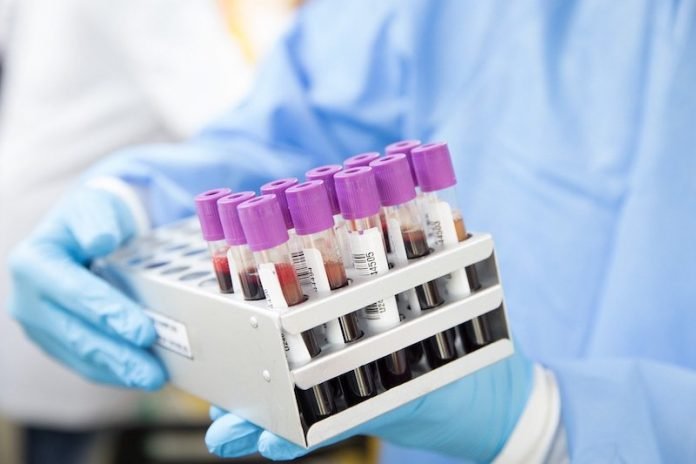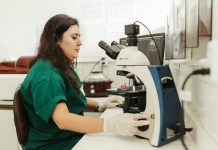
Scientists from UT Southwestern have developed a simple blood test to predict which NAFLD patients are most likely to develop liver cancer.
The research is published in Science Translational Medicine and was conducted by Yujin Hoshida et al.
An estimated one-quarter of adults in the U.S. have nonalcoholic fatty liver disease (NAFLD), an excess of fat in liver cells that can cause chronic inflammation and liver damage, increasing the risk of liver cancer.
Studies have found that people with NAFLD have up to a 17-fold increased risk of liver cancer.
For NAFLD patients believed to be most at risk of cancer, doctors recommend a demanding screening program involving a liver ultrasound every six months.
But pinpointing which patients are in this group is challenging and has typically involved invasive biopsies.
In the study, the team examined whether blood samples from NAFLD patients could reveal those at the highest risk of hepatocellular carcinoma (HCC), the most common form of liver cancer.
They analyzed samples from 409 NAFLD patients to reveal a set of 133 genes that were expressed at levels higher or lower than average in the livers of patients who developed HCC over a 15-year follow-up period.
The patients were then stratified into high- and low-risk groups based on how much these genes were expressed.
Over 15 years after the samples were taken, 22.7% of those in the high-risk group were diagnosed with HCC while no patients in the low-risk group were diagnosed.
The team says this test was especially good at telling us who was in that low-risk group. Doctors can much more confidently say now that those patients don’t need to be followed very closely.
If you care about liver health, please read studies about simple habits that could give you a healthy liver, and common diabetes drugs that may reverse liver inflammation.
For more information about health, please see recent studies about simple blood test that could detect your risk of fatty liver disease, and results showing this green diet may strongly lower non-alcoholic fatty liver disease.
Copyright © 2022 Knowridge Science Report. All rights reserved.



